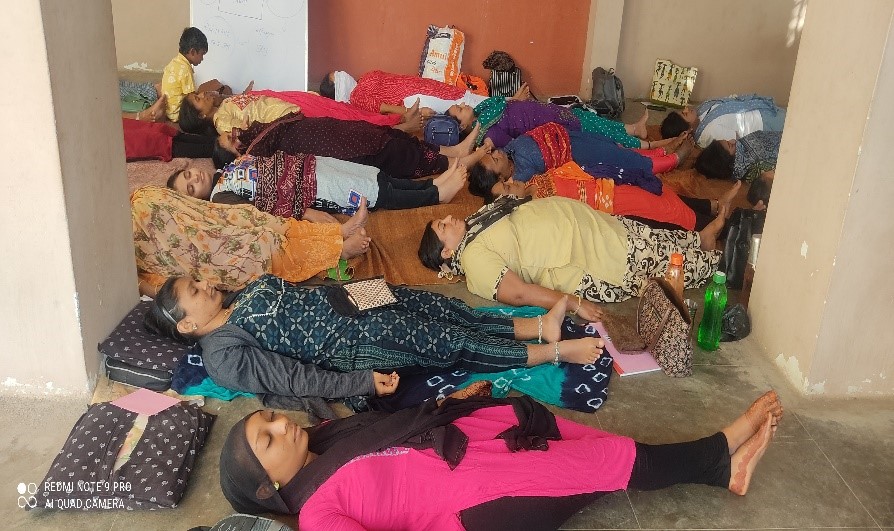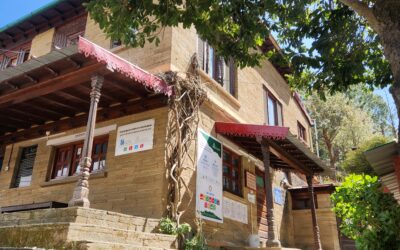As a woman who has more social class privilege than a lot of other women, I have had the opportunity and advantage to take decisions for my own life. When someone asks me about my choices in terms of what I like to eat, my favorite spot to hang out, movies I like to watch, and what I prefer doing in my leisure time, I have my answers ready. It hardly takes a second, sometimes more just because I’d be confused as to which one to pick. However, this is not the case with women I am working with, here in the urban slums of Bhuj, Kutch.
Leadership
I am currently working with Kutch Mahila Vikas Sangathan (KMVS) towards developing women’s ability and confidence to address issues of their concern. Here, I am closely engaged with an urban women’s collective called Sakhi Sangini. We recently organized a self-awakening leadership program that aims to build agency among these women over a period of a year. Their age varies from 21 to 50.
Also read: The inspiring story of Meenakshi Tai
The motive behind conducting this program is for them to have a platform to talk about themselves which they otherwise are unable to do in their everyday lives. It also gives an opportunity to identify more proactive women and then strengthen them further so that they emerge as leaders and role models within their community. We also train them to become paralegal workers and they, in turn, empower women who, on their own, were not coming forward for various reasons.
As a part of one such session, we asked them about their choices and preferences. I was shocked when they couldn’t say anything. So, we gave them a piece of paper and a pen and about 20 minutes to think and write about it. For the first time in their lives, they spent time wondering what they liked and not just what they had to like because of their children, family, and husband.
Choice & Empowerment
As the conversation moved forward, most of the women said their way to spend leisure time is to do household chores. On asking “Why?”, they said ”Kyunki hum yeh roj karte hain” [because we do it everyday]. When asked, “Kya ye kaam karna accha lagta hai?” [Do you like to do this work?] The answer was “Pata nahi“ [Don’t know].
On asking about their favorite movie, most of the women said either ‘Hum Saath Saath Hain‘ or ‘Vivah’. They mentioned these two movies not because they liked the music, narration, storyline, plot, or actors but because these were the only movies they had watched. The other reason was that their families liked it.

In all these responses, I was only thinking where is the choice and preferences of these women. In this whole structure of family, children, and society, I wanted to understand where they see themselves. Unfortunately, they often don’t. According to them, they don’t think they play any important role in society. While we know how far from reality that is.
Fear of ‘What If’?
Another activity we did during the training was where we asked all the women to go into a deep sleep. They were to imagine people surrounding them, and what they will say about them when they die. The idea was to push them to think if they feel they would leave any impact. If they have done some good deeds worth remembering, or anything they want to rectify? If given a second chance, what would they want to do differently?

The women responded to this mainly by saying that they are highly afraid about what their family and society would think about them. Because of this fear, they don’t even do simple things they want to do, like going for a walk or eating their favorite food. This activity made them realize what will happen to their aspirations and desires if they die today.
One girl said that she is determined to complete her graduation now. Earlier, she was not sure whether to go ahead with it or not, since her community is not in favor of educating women.
I am not sure what impact these discussions will have on women and their lives. Whether anything will change for them or if they will they continue their lives as it is. But I’m glad to see that they have begun questioning their choices and preferences. This feels like a step in the direction of empowerment.




Beautiful illustrations on choices and preferences.